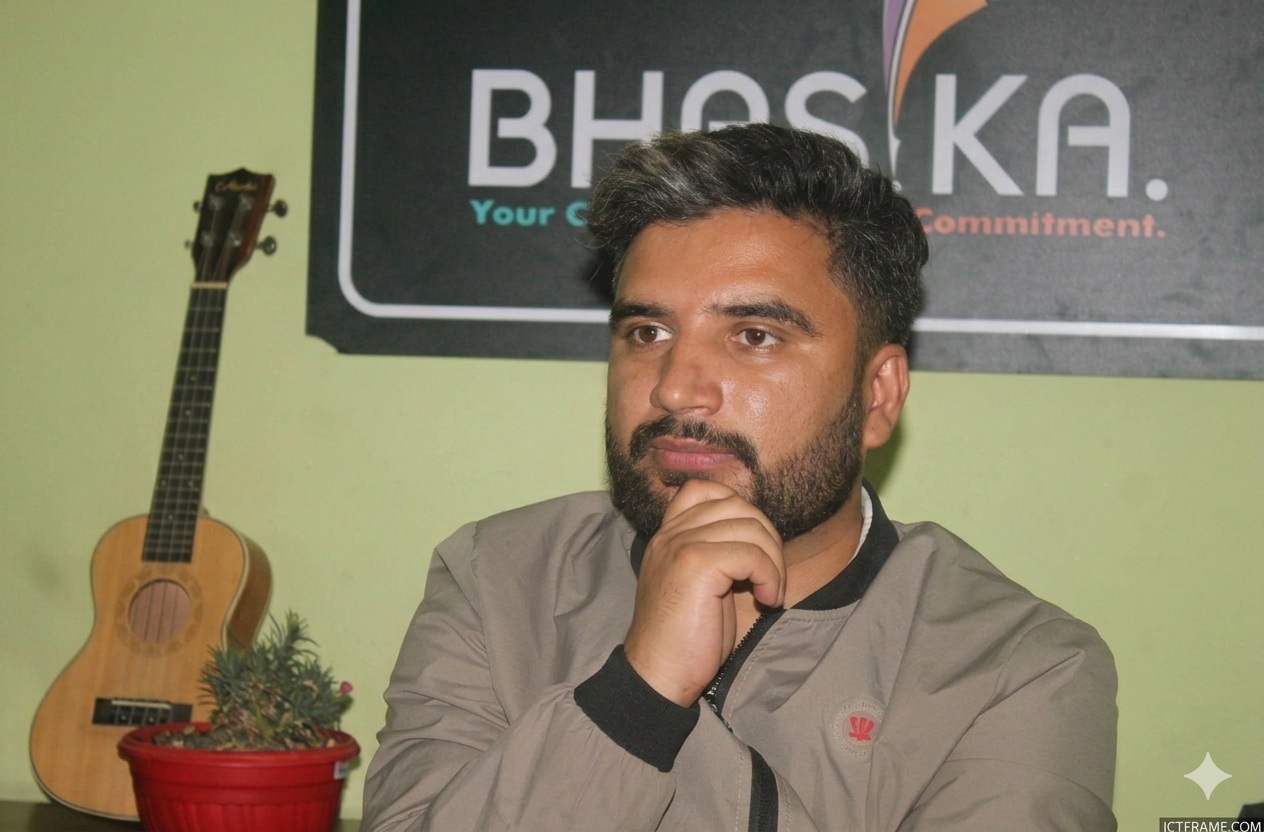Nepal Rastra Bank Governor Dr. Biswo Poudel Condemns Attack on Parents’ Home in Chitwan
11th September 2025, Kathmandu
Nepal Rastra Bank Governor Dr. Biswo Poudel has expressed his profound grief and frustration after his ancestral home in Chitwan, where his elderly parents reside, was set on fire during the wave of protests.
Governor Poudel Condemns Attack
The attack follows the earlier burning of his official residence in Bhaisepati, Lalitpur, and highlights the escalating, and increasingly personal nature of the violence in Nepal.
A Personal Attack with Devastating Consequences
In an emotional social media post, Governor Poudel described the attack on his Chitwan home as a targeted act of violence that not only destroyed property but also endangered the lives of his vulnerable parents. He specifically mentioned his 82-year-old mother, who is recovering from heart surgery, and his 87-year-old father. He wrote that the first stones thrown by the attackers struck the bedroom where his mother was resting, a detail that underscores the recklessness and cruelty of the act. The governor’s post was a poignant reflection on the personal toll of the political unrest, questioning why the protesters’ anger, which he noted was not satisfied with burning his official residence, had to be directed at his family and ancestral home.
Dr. Poudel’s statement offered a glimpse into his humble beginnings, in what he describes as an effort to counter what he believes is misplaced anger directed at him. He shared that his parents, both with only basic literacy, raised their children in a difficult rural environment. He emphasized that he has always stood for honesty and integrity, and has never taken any unlawful money. By sharing this personal history, he challenges the protesters to prove any corruption against him, while pleading with them to not “punish innocent elders and children for politics.”
The Destruction of a Family History
The burning of the governor’s homes in both Chitwan and Lalitpur resulted in the loss of more than just physical property. Dr. Poudel recounted the destruction of valuable and irreplaceable personal items, including rare books, historical artifacts, and religious idols collected over a lifetime. His Bhaisepati residence, which was a modest plot of land purchased before he entered public service, also contained his nine-year-old daughter’s favorite room and toys. Even more distressing, he noted that intruders deliberately destroyed family photos and portraits of his parents before setting the house ablaze. The governor’s emotional account of his wife and daughter being forced to sleep in a neighbor’s home, feeling like “refugees in our own country,” highlights the immense human cost of the violence that has spread across Nepal.
This incident is particularly significant because it transforms the protest from a criticism of institutions to a personalized attack on an individual’s family. While many public officials and politicians have had their homes and offices targeted, the attack on the home of the central bank governor’s elderly parents represents a new level of aggression and a breakdown of traditional boundaries. Such actions risk alienating the very public that the protesters claim to represent and could undermine the legitimacy of their movement.
Wider Implications for Nepal’s Stability
The attacks on Governor Poudel’s homes are part of a wider pattern of escalating violence during the “Gen-Z” protests. Several other high-profile officials have also been targeted, with their homes and businesses burned. This has led to a great deal of concern among observers who fear that such attacks could deepen social divisions and make it more difficult for a peaceful resolution to be found. The targeting of public officials’ families also has a chilling effect on the public sector, potentially discouraging honest and capable individuals from taking on public service roles out of fear for their personal safety and that of their loved ones.
In his statement, Governor Poudel made it clear that he does not want to escalate tensions. Instead, he made a direct appeal for understanding and for the protesters to focus on truth and accountability rather than resorting to violence. He reiterated his commitment to transparency and invited anyone with evidence of corruption against him to make it public. His words, which carry both sorrow and irony, serve as a poignant reminder that while the political crisis in Nepal may be about governance and reform, its human toll is deeply personal and painful. The coming days will determine whether the protests will continue on this destructive path or return to peaceful advocacy, which is a key demand of the protesters themselves.
For More: Governor Poudel Condemns Attack







